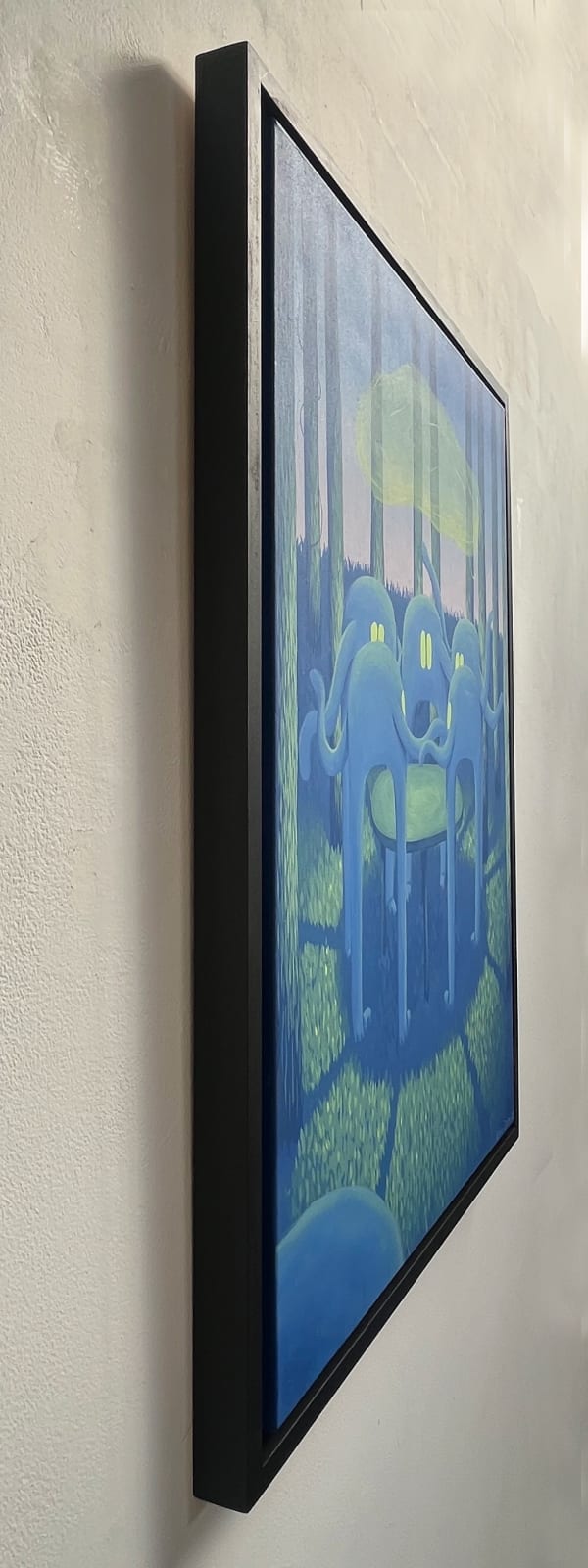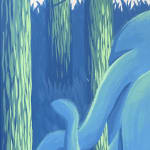Eloise Dorr
26 1/4 x 38 in
Further images
Verbal communication between women has been a point of contention throughout history and across cultures. Women’s words have been banned, restricted, and discouraged, whether in the privacy of the domestic sphere or publicly in law, at different points throughout history (as well as in current day).
Terms like ‘gossip’ and ‘nag’ are heavily gendered with negative connotations, and the phrase ‘old wives’ tale’ displays that women’s words are synonymous with falsehood. These rhetorics that have stood the test of time all paint a dangerous picture about women’s oral history. Whether simply speaking to each other, sharing information, or speaking out on public platforms, history has told women to be quiet, or even to pit against each other. For example, the term ‘gossip’ originally described women who had strong attachments with other women, such as godparents and midwives, over time changing to mean speaking ill of others. In 16th Century England, a ‘gossips’ bridle’ was a humiliation device for women considered too righteous, or nagging, to stop them from speaking altogether.
The most important and transformative conversations of my life have been with women. Many corners of society have feared women’s verbal power, with so many persecuted, or even lost their lives. That fear, I believe, comes from the power women can hold in their words, whether through storytelling, sharing information, processing the world, or supporting each other, that power has always rung strong and had the ability to make change. This piece highlights the light cast by these conversations, and the elation they bring amongst communities. A group of women in a circle conversing in the forest sounds like a really nice time to me, but this format has often been painted with a demonic brush. This painting is an effort to reflect on the historical fear of women’s words, and to highlight the magic and the joy they bring through a bright, glowing stream. My characters usually don’t have mouths (this might be an unintentional self-reflection from being called too opinionated, or too loud, at times in my life, I’m not quite sure), which feels either poignant or counter-intuitive, that’s up to the viewer.





















